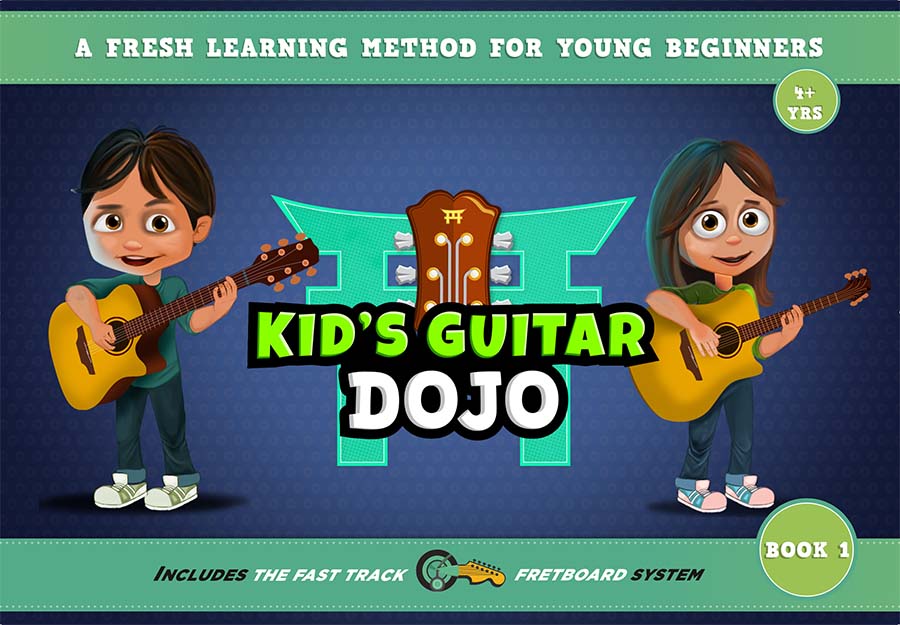Kids fun guitar learning online : Jammin Genius Sparks Creativity
Embark on a musical journey where the joy of guitar blends seamlessly with the magic of learning, all within the online realm of fun guitar lessons for kids! This article will be your guide, exploring the various facets of online guitar lessons for kids and providing insights for parents navigating this exciting path. We’ll delve into the many benefits of online guitar lessons and outline essential factors that every mom or dad should keep in mind when considering this musical adventure for their child.
Let’s start by looking at some of the benefits
Building Skills and Confidence: The Power of Online Kids Guitar Lessons
Embarking on a musical journey from the cozy confines of home is a game-changer for our budding guitarists. When your child takes on guitar lessons from the comfort of home, it becomes more than just learning how to play; it becomes a gateway to essential life skills.
In the realm of guitar learning, children not only learn skills like the the art of creating melodies but also lay the foundation for discipline and perseverance. Confronting challenges like conquering new chords, melodies, and tunes, they simultaneously nurture skills that extend far beyond the fretboard.

MUSCLE MEMORY
For a 5-year-old, understanding that repetition is key to mastering something can be a tricky concept. They may feel they can’t do it straight away, thinking they lack essential skills. However, with the right guidance, this is far from the truth. Acknowledging and rewarding small milestones becomes part of the process, allowing students to see how practice and progress go hand in hand

Let’s Look at Some Of The Benefits Of Learning The Guitar
- Enhanced Cognitive Abilities:
Scientific studies, such as a 2014 study published in the “Frontiers in Psychology,” suggest that learning to play an instrument, including the guitar, can enhance cognitive abilities, memory, and attention span in children.
- Boosted Confidence and Self-Esteem
- Improved Academic Performance
The discipline required to learn and practice the guitar can positively impact academic performance. A 2016 study in the “Journal of Educational Psychology” found a link between music education and improved academic achievement.
- Stress Reduction and Emotional Well-being
Playing the guitar can be a form of self-expression and stress relief. Research, including a study published in “Psychology of Music,” indicates that engaging in musical activities can have positive effects on emotional well-being and stress reduction.Playing the guitar can be a form of self-expression and stress relief. Research, including a study published in “Psychology of Music,” indicates that engaging in musical activities can have positive effects on emotional well-being and stress reduction.
- Enhanced Motor Skills
Learning to play guitar involves fine motor skills, helping children refine their coordination and dexterity. The Suzuki method, which emphasizes early exposure to music and movement, aligns with the development of motor skillsLearning to play guitar involves fine motor skills, helping children refine their coordination and dexterity. The Suzuki method, which emphasizes early exposure to music and movement, aligns with the development of motor skills
- Increased Discipline and Time Management
Regular practice routines instill discipline and time management skills in children. The commitment required to progress in guitar playing contributes to the development of these crucial life skills
- Cultural and Global Awareness
Learning guitar exposes children to a diverse range of musical styles and cultures. This exposure fosters cultural awareness and an appreciation for global perspectives.
Navigating the Musical Journey: 8 Key Considerations for Parents
There are many great teaching websites online with excellent instructors; however, it’s wise to verify the qualifications and expertise of online guitar instructors. Look for experienced teachers who specialize in teaching children and can create a positive and encouraging learning environment. This is crucial because, amidst the wealth of valuable resources, there are unqualified instructors providing lessons on platforms like YouTube.
While YouTube offers a vast array of content, it can also introduce distractions and misinformation. Ensuring your child receives guidance from a qualified instructor guarantees a structured and effective learning experience, minimizing the risk of developing improper techniques or habits. The expertise of a qualified instructor contributes significantly to your child’s musical journey, fostering a solid foundation and a lifelong love for playing the guitar.
KEEP IT FUN

